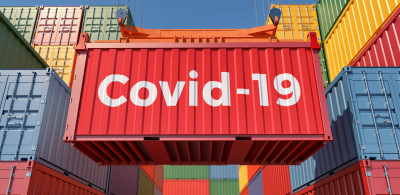COVID-19 has definitely affected everyone's lives in one way or another. While the situation in Quebec seems to be under control, we still do not know when we will be able to return to our pre-pandemic lives.
During this difficult period, companies have not only had to juggle temporary layoffs, reduced customer operations, sourcing difficulties and return-to-work measures, but those engaged in international trade have also seen their day-to-day operations changed by government decisions. Importers and exporters alike have had to deal with these changes.
Here's a brief overview of what has changed.
INCOTERMS
A new version of the Incoterms comes out every 10 years – and 2020 was no exception. Even though the changes mainly concern the specific features of the Incoterms, the term DAT (Delivered at Terminal) has now been replaced by DPU (Delivered at Place Unloaded).
C-TPAT
C-TPAT member companies were informed that new minimum-security criteria would need to be implemented by 2020. The new criteria confirm what was desired by the U.S. customs authorities and involve major changes that require the introduction of new procedures such as the commitment and accountability of senior management, implementation of procedures to thwart cyberattacks, oversight of trailer inspections and better management of high-security seals.
CUSMA
After several years of negotiations, the governments of Canada, the United States and Mexico have finally agreed to a new version of NAFTA that affects all sectors of activity, particularly farming and the automotive sector. With the percentage of North American components now higher, it is more difficult for manufacturers to certify their products. There may be new negotiations to relax the rules. Stay tuned!
CAED
The Canadian Automated Export Declaration (CAED) will soon be replaced by the new Canadian Export Reporting System (CERS). Exports worth more than CAD$2000 must be reported on a B13A form. Until now, exporters had to use CAED, which will soon no longer be available and CERS will have to be used for all returns without exception.
AMERICAN SURCHARGE
While this issue between Canada and the United States was thought to be settled, the Trump administration is now applying a new 10% surcharge on Canadian aluminum. Let’s see how the Canadian government responds to this tactic by its American counterpart.
Whew! The very least we can say is that 2020 has been a year of change. At W2C, we understand the challenges you face. That's why, since the end of 2019, we've been giving seminars on each of these topics.
Visit our website for our seminar schedule:
- Incoterms 2020
- Overview of C-TPAT Minimum-Security Criteria
- New CUSMA Free Trade Agreement
- New CAED Platform
- Export to the United States



